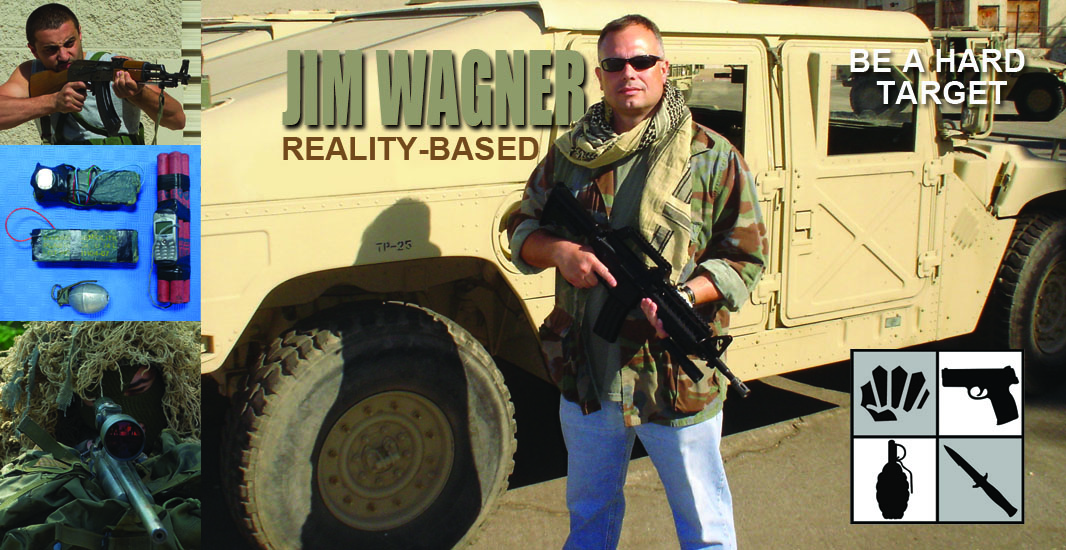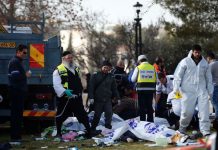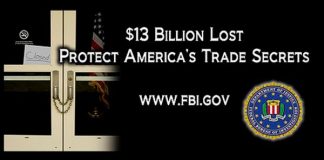Immediately after the train bombings in London on 7/7 the New York Police Department implemented a new policy of randomly searching people’s personal items, mostly carry bags and purses, in the subway stations. However, police officers were strictly warned not to use “racial profiling” (specifically stopping a person based on race or national origins). In other words, they are to search people randomly, without rhyme or reason like they do at airports where computers decide who gets searched, and not just stop young men and women of Middle Eastern descent. The police believe that just because the terrorists on 9/11, 7/7, 7/21, and the countless attacks on American and British troops in Iraq were of Middle Eastern descent, that these incidents are no reason to stop and question people who “appear” Middle Eastern. This policy reminds me of when I was a police officer with the Costa Mesa Police Department (1988 to 1999) when we were ordered not to warn fellow officers if a prisoner had AIDS, even if he was bleeding all over us. We could not use the word AIDS, even if the prisoner warned us that he had it, so we would have to use code words to warn each other. This was not a city policy, but a State of California policy.
Brooklyn Democrat Dov Hikind said that NYPD’s randomly checking of bags at subway entrances may be politically correct, but it won’t save lives. He said, “It’s insane to look for bombs in the bags of 75-year-old grandmothers.” He went on to state, “There is a terrorist profile for a potential suicide bomber, and it’s not a 75-year-old grandmother”
Dov Hikind accurately said, “The FBI and authorities have a good idea of who is going to commit terrorism. They all look similar, but everyone is terrified of using the word ‘racial.’” He also shot a round across the bow, “Every case of recent terrorism has been committed by individuals [from a] Middle Eastern descent.”
Of course, there are plenty of people who are against racial profiling and support NYPD’s current policy. New York Civil Liberties Union’s chief Donna Lieberman called racial profiling “discriminatory,” and said, “serves no purpose whatsoever.” She added, “It’s bad law enforcement, and it’s fundamentally at odds with our basic democratic values.” NYPD spokesman Paul Browne said, “Racial profiling is illegal, of doubtful effectiveness, and against department policy.” Mayor Michael Bloomberg ducked a question asked about Hikind’s statements while campaigning in Catskills.
Expectedly, Wissam Nasr, head of the New York office of Islamic Council on American-Islamic Relations said, “This is America. We don’t do that here. That’s Racial Profiling 101 – that’s what we’re trying to avoid.” So, let’s reverse the tables. Suppose there were a rash of Jewish terrorists attacking mosques across America. Would Nasr tell us not to look at Jewish men penetrating predominantly Arab neighborhoods?
In December 2002, 15 months after 9/11, I went to Israel to train military personnel at the Wingate Institute (Baghad 8). The Israelis were well aware of our political correctness in the United States and one member of the IDF (Israeli Defense Force) said to me, “You Americans are crazy for not profiling. Don’t you know who the enemy is? We profile in Israel and are not afraid to say so. We haven’t lost a passenger jet in over 20 years. Profiling works.”
When I was in my mid 20’s I traveled to Israel on El Al Israeli Airlines. I was profiled going there and coming back. I was questioned for a good hour, along with my traveling companions. Leaving Israel was even worse. When asked if I had had any contact with Palestinians I said, “Yes. I was invited to the home of a nice family, and we had tea and conversation.” I admitted to the security agent that I was researching the Arab-Israeli tensions. I also made sure that he, actually it was “they,” that I also had dinner with an Israeli diplomat’s family as well. This particular trip was during the first Intafadah (Arabic for “uprising”) in the late 1980’s. I knew that I was going to be grilled for having such contact with the locals, but I knew that I had nothing to worry about. My companions and I were literally escorted onto the aircraft by security agents in Ben Gurion International Airport. I didn’t blame the Israelis for suspecting me as a person of concern. It was understandable.
Since that first trip I have traveled to Israel a few more times. I still get questioned by Israeli security, especially since I am not Jewish, but I am treated politely and I realize that it is for the safety of all passengers. Now that I am older and in their data base, the questioning now takes only a few minutes.
When I was in the Arabic country of Jordan in Spring of 2001 the Jordanian authorities in a small town were very suspicious of me. I was questioned as to my “purpose” in the country. One very stern police captain even hinted that I may be a “spy.” That was a tense moment, to say the least. Yet, I could understand why I would be suspicious to them, and I answered all their questions as to my purpose in the country, which was legitimate. From experience I know exactly what it is like to be a suspect in a non-democratic nation, and where one does not have the luxury of demanding one’s rights. Profiling in most countries is a whole lot more frightening than it is in a European or North American country.
I personally believe in profiling, but I don not believe in racial profiling. The word “racial” interjected into the term “racial profiling” is actually an old law enforcement term that many people ignorantly attach to “profiling” as it relates to terrorism.
Before 9/11 we police officers used to profile criminals, and we called it that. In the city where I was a patrol officer, Costa Mesa, California (just south of Los Angeles), we had two major Hispanic gangs in our city. One was called Varrio Little Town (VLT), and the Shalimar Street gang. As a police officer driving around I would definitely “profile” potential gang members. They had certain tattoos that were common among them, they dressed a certain way, they walked a certain way, and they all used the same vocabulary. Most of them could be identified within seconds just by looking at them. If I saw someone I thought was connect to VLT or Shalimar Street I would stop and talk with them to see what they were doing. Many of these contacts resulted in good arrests.
There were many citizens who complained and said that I, and other CMPD officers, were racially profiling Hispanics, even though my area (Patrol Area 1) was 65% Hispanic, and all of the gang members on that side of the city were Hispanic, with the exception of one or two of them. However, I didn’t stop the grandmother walking her grandchildren to school, or the street vendor selling corn, or the car full of young men on their way to work even though they were Hispanic. No, I contacted the ones who displayed indicators that they were gang members. I knew how to spot them, and they knew how to spot us, even when some of the officers worked undercover. Of course, I wasn’t right 100% of the time when I suspected someone of being a gang banger, but I was right most of the time. If I was wrong I had no trouble apologizing to the individual for the inconvenience and sent them on their way.
Don’t get me wrong. There are a fair number of police officers out there who are “bad apples” and may have animosity for a particular race, and they may even harass these people. Such police officers have no business in police work, and their employment terminated if they are abusing their power. However, if most of the crime in a particular geographic location is committed by blacks, Vietnamese, or whatever, a police officer cannot turn a blind eye to those in that race who exhibit behavior consistent with potential illegal activities. On the east end of the city of Costa Mesa, which was predominantly white, we had a problem with Neo Nazis and White Supremacists gangs. When I had to work that side of the city guess what type of people I kept my eyes opened for? That’s right, I looked for young white men who had the tell tale signs of the subculture that I knew to have criminal connections. I looked for specific types of tattoos, the shaved head, the combat boots, the muscle shirts, etc. If I would have ignored them, and not made contact with them every time I saw one of them, then the citizens of Costa Mesa would not have been getting the protection that they deserved. Politicians and different organizations can afford to be politically correct, but a police officer trying to protect a community can’t. I was always an “equal opportunity” police officer – I would arrest any criminal regardless of their race, ethnic background, sex, sexual orientation, or religion. It really didn’t matter with me who they were, and I feel that most police believe as I do. Interesting enough, nobody would scream or complain when I, a Caucasian police officer, would arrest Neo Nazi criminals, but I, and my fellow officers were often criticized as “racists” for arresting or questioning Hispanic gang members. Of course, it was not the terrorized citizens who had to put up with these thugs in their neighborhoods, but it was always someone who didn’t have to live in the situation.
On September 10, 2001 the United States conducted profiling of criminals on a regular basis. Some people back then cried “foul,” but it was a common practice. Of course, singling out someone just because of their race was always forbidden. Then, on September 12, 2001 I felt like I was with the Gestapo (the ruthless German police during the Nazi era); of course, I say this sarcastically. I was given full authority by my lieutenant to question and search anyone I wanted to, especially Middle Eastern men, coming into John Wayne Airport where I was immediately assigned. After the lieutenant found out that I had just come back from training in anti and counterterrorism in Israel, and knew a great deal about Arab terrorism, he put me in charge of the main check point at the front of the airport. That day I asked people at point blank, “Where are you from? Why are you here? How long have you been in the country?” These questions were anything but politically correct. One must have to remember that this was the day after we got attacked in the United States, and we were all afraid of getting hit again. That was why I, we, behaved like we did. None of us were disillusioned on that day, we were in fact looking for men between 25 and 35 of Middle Eastern descent. The country was scared to death, and let us. However, I did not abuse or humiliate anyone. If I was satisfied with their answers I let them go. Don’t think I just “profiled” Middle Eastern men, because I went beyond that. I also questioned a few whites and other races. I was way ahead of the curve at that time, and I knew that Islamic terrorists were not strictly of Middle Eastern descent.
When I went to counterterrorism school in March of 2002, sent by the U.S. Government, we were told to pay close attention to young men and women of Middle Eastern descent, as well as South Asian descent. We spent hours studying various Islamic terrorist groups, along with a few non-Islamic groups. Now, if we had been attacked by Eskimos, I’m sure we would have concentrated on Eskimo groups, but we weren’t. We were attacked by Saudi Arabian nationals trained in Afghanistan and the United States. None of my instructors came out and said that the Arabs, Persians, or other Islamic ethnic groups were “the enemy,” other than the Taliban government. They simply said for us to know what to look for in order to keep everyone focused on the potential threats.
When things started to calm down a few months later, and people were less afraid of terrorist attacks, the “racial profiling” rhetoric returned. Now, three years later it is in full swing again.
In July I was in Ireland and someone said that applying political correctness to the War on Terrorism was, “like putting your head in the sand like an ostrich, where you leave your ass out in the open to be kicked.” Somewhere there is a happy balance between people’s rights and going after the bad guys. What needs to be done is to first eliminate the term “profiling” altogether and name it something else. Perhaps we should use a term like group-like threat or extremist-like assessment. During the 1970’s the American public didn’t like the term “napalm” because this destructive bomb’s name was over-used by the anti-war movement in protest of the Vietnam War. So, the military renamed the weapon “Firebomb.” After the change of names there were little complaints after that. Problem solved.
Obviously, the police still have to do random checks of people in airports and train stations, even on little Johnny’s Teddy Bear. After all, a bomb or gun can be placed inside without the child’s knowledge. And yes, we still have to randomly check grandma once in a while in case she is carrying a bomb under duress. However, we cannot ignore likely candidates of terrorism, regardless of race. There’s not one police officer or Special Agent out there who disagrees with profiling done in a responsible way. It’s only those who don’t have to come face-to-face with criminals or terrorists who want to ignore the obvious, and who offer no alternatives. Unfortunately, some of these people are even the chief of police, mayors, and other top officials.
Even though the NYPD, London MET, and other agencies chooses not to “profile,” who is to say that you can’t. If you are a citizen you can be suspicious of whoever you want to. I do it all the time. Just two weeks ago I sat by an old Turkish couple who were Islamic. I didn’t have a single worry about them. In fact, they were like family to me; a very nice couple. Yet, there were one or two people on that flight that I had my eyes on during the trip, and one of them was Anglo-Saxon (white). Just because you may be suspicious of a Middle Eastern 19 year-old woman, or a tough Filipino male who is nervously hugging his carry-on bag doesn’t mean you are racist. What makes you a racist is assuming that all people of the Islamic faith are terrorists, or “freedom fighters,” if you wish to label them that way instead. Not “judging a book by its cover” in order to stay politically correct can get you and others killed.
Your main goal is to try to spot a criminal or terrorist by looking at the whole picture. If you feel there may be a threat from someone you are observing, then get out of the area and alert the authorities. It’s always better to be safe than sorry.
About the author: Jim Wagner is a police and military Defensive Tactics instructor and a civilian Reality-Based Personal Protection trainer. For more information visit www.jimwagnerrealitybased.com







